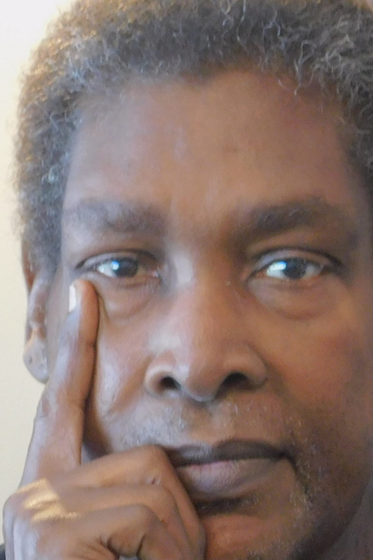
Teacher evaluation.
- Purpose of Teacher Evaluation.
- Methods of Evaluation.
- Challenges in Teacher Evaluation.
- Feedback and Professional Growth.
- Teacher Involvement in the Process.
Purpose of teacher evaluation.
Teacher evaluation is a systematic process designed to assess the performance and effectiveness of teachers. Its primary purpose is to enhance teaching quality, improve student learning outcomes, and support teachers in their professional growth.
Evaluation identifies teachers’ strengths and areas needing improvement. Through classroom observations, student feedback, and performance reviews, teachers receive actionable insights to refine their methods.
Enhanced teaching strategies that lead to better student engagement and achievement. Teachers need continuous growth to adapt to changing educational needs.
Evaluations highlight specific skills or knowledge gaps, guiding teachers toward targeted training and development opportunities.
Teachers stay current with best practices and new teaching techniques. Schools are responsible for delivering quality education. Teacher evaluations provide evidence of their contributions to student success and adherence to school standards. Greater trust among stakeholders, including students, parents, and administrators.
In essence, teacher evaluation is a collaborative tool for growth, accountability, and educational excellence, benefiting both educators and learners alike.
Methods of teacher evaluation.
Teacher evaluation involves various approaches to assess teaching effectiveness. These methods provide a well-rounded understanding of a teacher’s performance and impact on student learning.
- Classroom Observations–Administrators, peers, or instructional coaches observe teachers during lessons to assess their teaching practices. Observers use a rubric or checklist to evaluate aspects like lesson delivery, classroom management, and student engagement. Feedback is provided based on what was observed. Direct insights into real-time teaching. Can be subjective if not standardized.
- Self-Assessment-Teachers reflect on their own practices and evaluate their strengths and weaknesses. Teachers complete self-evaluation forms or write reflective journals. Often combined with professional development plans. Encourages personal accountability and growth.
3.Student Feedback-Collecting input from students about their classroom experiences. Surveys or questionnaires are given to students, asking about teaching effectiveness, clarity, and engagement. Provides a perspective from the primary beneficiaries of teaching. May not fully capture a teacher’s effectiveness, especially with younger students.
4. Peer Review-Fellow teachers review each other’s teaching practices. Peers observe lessons, review teaching materials, or collaborate on instructional improvement. Promotes collaborative learning among teachers. Can be influenced by personal relationships or biases.
5. Student Performance Data- Using student test scores, grades, or other metrics to evaluate a teacher’s impact on learning. Data is analyzed to measure student progress over time. Often combined with other evaluation methods for context. Provides measurable evidence of teaching effectiveness. Factors beyond the teacher’s control can affect results.
6. Parent Feedback-Gathering insights from parents about their perception of the teacher’s effectiveness and communication. Surveys or meetings allow parents to share their views.
7.Teaching portfolios-A collection of materials that showcase a teacher’s work and achievements. Portfolios include lesson plans, student work samples, assessments, and reflections. Demonstrates a teacher’s planning, creativity, and impact.
8.Standardized Evaluation Tool-Using structured frameworks like the Danielson Framework or Marzano Teacher Evaluation Model to assess performance. Teachers are rated on specific criteria like instruction quality, professional responsibilities, and classroom environment. Provides consistency and clear benchmarks.
Best Practices for Teacher Evaluation
- Use multiple methods: Combining methods ensures a fair and comprehensive evaluation.
- Provide constructive feedback: Focus on growth and actionable suggestions.
- Ensure transparency: Clearly explain the process and criteria to teachers.
- Foster a supportive culture: Make evaluation a tool for improvement, not judgment.
By leveraging a mix of these methods, teacher evaluations can effectively support both individual development and overall educational quality.
Challenges in teacher evaluation.
While student feedback is a valuable method for assessing teacher effectiveness, it comes with specific challenges that educators and administrators should consider:
1.Student Bias-Students may base their feedback on personal likes or dislikes rather than objective teaching effectiveness. Example: A teacher who enforces strict discipline may receive lower ratings from students, even if they are effective at teaching.
2.Lack of Maturity- Younger students may lack the maturity or understanding needed to evaluate a teacher’s skills fairly. Example: Elementary school students may focus on how “fun” a teacher is rather than the quality of instruction.
3. Influence of Grades- Students’ opinions may be influenced by the grades they receive. Example: Students who receive poor grades might rate a teacher poorly out of frustration, regardless of the teacher’s competence.
4. Limited Understanding of Teaching Practices-Students may not understand the complexities of effective teaching or why certain methods are used. Example: A teacher’s emphasis on critical thinking might be undervalued because students find it challenging or unfamiliar.
5. Pressure to Please-Teachers might feel pressured to prioritize popularity over effective teaching to receive positive feedback. Example: A teacher might avoid giving challenging assignments to keep students happy, which can compromise educational quality.
6. Cultural and Contextual Factors- Cultural or contextual factors may shape how students perceive and rate their teachers. Example: In some cultures, students may hesitate to provide honest feedback about their teachers out of respect or fear of repercussions.
To make student feedback a meaningful part of teacher evaluation, schools can:
- Use age-appropriate tools: Design feedback forms suited to students’ maturity levels.
- Provide guidance: Educate students on how to give constructive and focused feedback.
- Combine with other methods: Use student feedback alongside classroom observations and other evaluation tools for a balanced view.
- Focus on patterns: Look for consistent trends in feedback rather than isolated comments.
- Ensure anonymity: Allow students to provide feedback confidentially to promote honesty.
By addressing these challenges, student feedback can become a valuable, fair, and actionable tool in teacher evaluation.
Feedback and professional growth.
Feedback is essential for professional growth, especially for teachers and professionals in education. It helps identify strengths, areas for improvement, and strategies for development.
Feedback is information or guidance provided about your performance. It helps you understand what you are doing well and what can be improved. Example: A principal might tell a teacher, “Your lessons are engaging, but try to ask more open-ended questions to encourage critical thinking.”
Feedback highlights what you’re good at and what needs improvement. Example: A teacher learns their classroom management is excellent but needs to improve lesson pacing.
Constructive feedback encourages learning new skills and improving existing ones. Example: After receiving feedback, a teacher attends a workshop on integrating technology in lessons.
Positive feedback boosts confidence, while constructive feedback inspires growth.
Example: Being praised for creativity motivates a teacher to explore innovative teaching methods.
Feedback helps set realistic and meaningful professional goals. Example: “Focus on differentiating instruction for diverse learners this semester.”
Professional growth is the continuous process of improving skills, knowledge, and performance in your career. It involves learning new techniques, adopting best practices, and staying updated in your field.
Tips for Using Feedback for Growth.
- Be Open: View feedback as an opportunity, not criticism.
- Ask Questions: Seek clarification to fully understand the feedback.
- Set Goals: Focus on specific, achievable goals based on the feedback.
- Take Action: Implement changes and continuously evaluate your progress.
Feedback is a powerful tool for personal and professional development. When used constructively, it helps identify areas to grow, build confidence, and enhance skills, ultimately leading to success and career advancement.
Teacher involvement in the process.
Involving teachers in the evaluation process is essential for making it fair, effective, and meaningful. When teachers actively participate, they feel more ownership and are more likely to view evaluations as opportunities for professional growth rather than as judgment.
Builds Trust: Involvement ensures that teachers understand the process, reducing anxiety and fostering trust between teachers and evaluators.
Encourages Professional Growth: Active participation allows teachers to focus on areas of personal and professional development.
Promotes Fairness: Teachers can share insights about their unique challenges, ensuring evaluations are context-sensitive.
Strengthens Collaboration: Teachers and administrators work together to improve teaching practices and student learning outcomes.
Teachers reflect on their own performance and identify strengths and areas for improvement. Teachers set personal or professional goals that align with their development and student needs. Example: A teacher might set a goal to improve student participation through more interactive lessons.
Teachers can contribute to developing or refining evaluation tools and rubrics.
Teachers engage in discussions with evaluators to review feedback, clarify concerns, and develop action plans. Example: Discussing specific steps to address classroom management challenges highlighted in the evaluation.
Based on evaluation results, teachers work with administrators to create tailored growth plans. Example: A teacher might enroll in a workshop on using technology effectively if that was identified as an area for growth.
Teacher involvement in the evaluation process transforms it into a collaborative effort that fosters trust, encourages growth, and ultimately improves teaching and learning outcomes. When teachers actively participate, they take greater responsibility for their development and feel more valued as professionals.
Self-study materials for practical lessons:
1.Test:
- What is the primary purpose of teacher evaluation?
a) To determine teacher salaries
b) To identify teacher weaknesses
c) To improve teaching effectiveness and student outcomes
d) To rank teachers
Answer: ___
- Which of the following is NOT typically included in teacher evaluation?
a) Classroom observations
b) Student test scores
c) Peer and student feedback
d) Personal financial records
Answer: ___
- What is a commonly used tool for classroom observation during teacher evaluation?
a) Rubric-based evaluation
b) Open-ended interviews
c) Anonymous surveys
d) Informal chats
Answer: ___
- Which method of teacher evaluation is most likely to provide immediate feedback?
a) Annual performance reviews
b) Peer observation with discussion
c) Student satisfaction surveys
d) Reviewing student grades
Answer: ___
- Why is feedback considered a critical component of teacher evaluation?
a) It provides evidence for dismissal decisions.
b) It helps teachers align with administrative goals.
c) It offers actionable insights for professional growth.
d) It eliminates the need for student assessments.
Answer: ___
- What is the key benefit of involving students in teacher evaluations?
a) It holds teachers accountable for student failures.
b) It provides insights into the teacher’s instructional effectiveness.
c) It allows students to influence curriculum design.
d) It reduces administrative burden.
Answer ———–
- Which of the following is a critical ethical consideration in teacher evaluation?
a) Publishing teacher evaluation results publicly
b) Ensuring evaluations are based on objective criteria
c) Only evaluating experienced teachers
d) Using only quantitative measures
Answer: ___
- How should evaluators address biases during teacher evaluation?
a) Focus solely on student test scores
b) Use multiple sources of data for a balanced perspective
c) Avoid observing classes personally
d) Ignore feedback from students and parents
Answer: ___
- Which of the following is a recent trend in teacher evaluation?
a) Relying exclusively on annual reviews
b) Using AI-based analytics to analyze teaching effectiveness
c) Eliminating self-assessment processes
d) Disregarding peer reviews
Answer: ___
- What is the significance of professional development plans in teacher evaluation?
a) They replace the need for formal evaluations.
b) They help in aligning teachers’ goals with institutional objectives.
c) They prioritize teacher weaknesses over strengths.
d) They limit teacher autonomy in planning.
Answer: ___
2.TRUE/FALSE question.
- Teacher evaluation is primarily conducted to identify ineffective teachers and terminate their employment.
(True/False)
- Classroom observation is one of the most common methods used in teacher evaluation.
(True/False)
- Student feedback should never be considered in teacher evaluations as it is subjective.
(True/False)
- A good teacher evaluation system includes both formative and summative assessments.
(True/False)
- Using multiple measures, such as peer feedback, student outcomes, and self-assessments, reduces biases in teacher evaluations.
(True/False)
- Teacher evaluation results should always be made public to ensure transparency.
(True/False)
- One purpose of teacher evaluation is to help teachers identify areas for professional growth.
(True/False)
- Student test scores are the only reliable metric for evaluating teacher performance.
(True/False)
- Ethical teacher evaluations should focus on both teacher accountability and professional development.
(True/False)
- Self-assessment is a useful component of a comprehensive teacher evaluation process.
(True/False)






